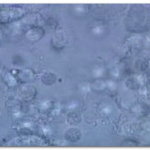There may be a lot of information about your health gathered from just taking a look on your stool. The color, consistency, texture, form, and general appearance of stool can give some clues on the condition of gastrointestinal tract. While black specks in stool could indicate something like food you have eaten, it may also be a sign of some disease, some of which may be serious. And, as Sander R. Binderow, MD, FACS, FASCRS of Atlanta Colon & Rectal Surgery says, usually having specks of dark color in your stool relates to what you might have eaten. Things like coffee and pepper could make the stool have black specks.
What could be the black specks you are seeing in stool?
Sometimes, people think that having black specks in stool is a sign of bleeding within the gut. However, while this may not be ruled out until a test or examination has been conducted by a doctor, in most cases, it may not be blood in stool. A drop of blood in your stool may not necessarily present as black speck, according to Dr. Binderow.
In most of the cases, when there is blood in stool, it is will cause an overall dark colored or red colored stool depending on where bleeding could be arising from in the gut. It may be from the upper part of the gut or the lower part. In case bleeding occurs on the upper part, it is likely that the stool will be diffusely or generally black in color. This is because as the blood passes through the stomach, it will be digested together with food and it mixes up thereby not possibly being able to show up as specks but rather as diffused black color of stool.
The entire or part of stool may be seen to have black color. Red stool may be due to bleeding that is occurring in the lower part of gastrointestinal tract. This is because the blood is not digested since it does not pass through the stomach. When you take food, the undigested particles may mix with stool, and they can come out in form of black specks visible in stool.
It is not usually a cause of concern when you see these specks unless it happens for a long time, and you have some other symptoms such as pain in stomach. The black specks could be seeds of fruits you have eaten. When you take fruits like banana, you may notice some dark specks in stool. The specks may also be parasites from the stomach.
When parasites or yeast and bacteria die off in stomach, they can pass along with stool and could appear as dark specks. In case, you are taking some supplements, these might create some loose stool or even temporary diarrhea. Dr. Binderow says that blood in stool will just cause some overall black tool or appear red depending on the part of gastrointestinal tract where it is occurring such as intestines or colon.
People who are worried about black specks they are seeing in their bowel movement, they need to realize that what they are actually seeing might not even be black spots in the first place. What they see could probably be some tiny pieces of dark green food they might have eaten such as spinach.
When undigested food particles mix with stool, they may appear as dark or black specks. However, these need not be a cause for concern. When you start some supplement, which cause die off of bacteria or yeast such as probiotic, antibiotic, antifungal, digestive enzymes or laxatives, you may be able to see dark or black spots on stool during that cleaning out period.
Some types of bad bacteria found in the colon may produce dark residue, which may come during this clean out. Any blood passing through stomach appears black in color because of oxidation of hemoglobin iron by the stomach acid. However, while the stool may be dark, it may not appear as specks. It is mostly diffused blood.
Many things will cause bleeding in stomach or duodenum such as duodenal inflammation or gastritis, ulcers due to alcohol, strong spices, and smoking. Infection with H. pylori bacteria could also cause bleeding in stomach. Stomach cancer, severe inflammation of throat, sepsis may be other possible causes of bleeding in gut.
Black bowel movement may also be caused by food such as beets, undercooked red meat, blueberries, blackberries, and licorice. If you are seeing black specks in stool, it is most likely that it is related to what you are eating, for instance, pepper or coffee.
When to see a doctor
Black specks in stool do not certainly indicate possibility of having colon cancer. Nonetheless, every patient needs to get proper screening for cancer if they have reached 50 years or earlier if they consider themselves to be at higher risk of having colon cancer.
Rather than worrying about the black specks you are seeing in stool, you may want to get a colonoscopy to rule out the chances of having cancer. Any black specks in stool that are accompanied by other symptoms such as foul smell, cramps, pain, loss of appetite, and diarrhea should compel you to see a doctor.


I’m still struggling with a bout of gastroenteritis which seems pretty close to cholera. Muscle weakness, stomach cramps, vomiting and diarrhea plus a fever(shivering and sweating at the same time) have all been in the equation. For several days my butt kept passing grey/black liquid. The diarrhea has now reduced but the last time I used the loo I noticed black blobs in the water They were all about half an inch long and looked like blobs of mold. Possibly this indicates internal bleeding as very little food has been eaten in the last week. I’m close to the three-score-and-ten years so it is a bit worrying.
I have being seeing black specks in my poop for 10 years
Hello! I have black specs in my stool and I have a foul smell even though I am showering 3 times a day.
I always get comments for my smell in my workplace and from friends. Is a nightmare
I’ve been to the doctor and says that everything is ok..!!
Please advise me from where this foul smell might be coming from.
Thank you
Regards,
Alex
Although I hope you’ve solved your problem by now, I thought I’d offer an opinion. A place to start, at least. I think your problem is bacteria related. If you’re showering often but still smell, you definitely have bacterial overgrowth in your skin and possibly in your gut. Make sure you’re eating a healthy diet, take probiotics, wash with antibacterial body soap, and use antibacterial and antifungal powder to keep dry after showers. If it seems to help, but you’re not perfect, you probably need a round of medication or cream first. Consult your doc. Good luck!